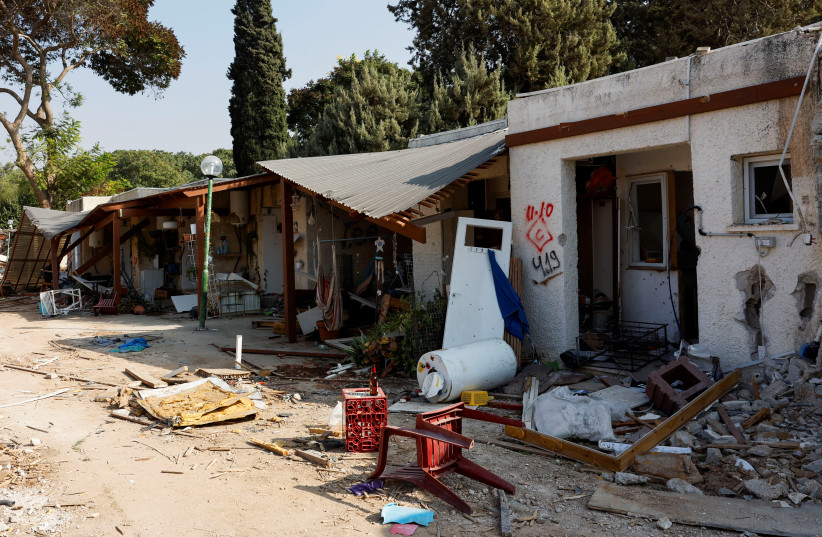
The day after the war will belong to the hundreds of thousands of Israeli combat troops. They will clamber out of the tanks, emerge from enemy tunnels, and wipe their boots clean of the Gazan mud. After months of fighting, marked by exceptional heroism and brotherhood, they will return home, switch on their phones, and discover that home is a parallel universe.
In their world, right-wing and left-wing soldiers would and often did take a bullet for one another. The settler and the Druze, the religious and the secular mourn together the loss of the friend who fell in front of their eyes. When they discover that at home the world is as it was, and the blindness and polarization of October 6 threatens to return, they will be the first to call out the change.
The day after the war will belong to the families of the fallen, whose loved ones paid the ultimate price. They will refuse to accept that their sacrifice, and those of hundreds like them, has not shifted the tectonic plates of the country’s political environment.
It will belong to the evacuees, uprooted from their homes, the hostages and their families, the thousands of wounded and those otherwise affected by the unbearable suffering of the war. They will expect their anger, frustration, grief, and pain to mean something, to lead to a shift in the Israeli reality.
It will belong to the young, who will look around and ask where we go from here, what kind of future awaits, when will it be their turn to take matters into their own hands and rebuild better.

The day after the war will have to exist within a space in which the vast majority of Israelis, who lost so much but gained each other, will be able to agree on at least three things: what we fought for; the values and the character of the state for which we will continue to fight; and the compromises we are ready to make in the name of our unity.
This space is the Jewish and democratic center ground – an alternative paradigm that doesn’t accept “uncompromising” as a positive value, but the reverse: one that believes Israel should be led by Right, Center, and Left together; pragmatic, responsible and statesmanlike, those who recognize the advantage in collaboration between those who hold different viewpoints and who reject the reliance on messianic and anti-Zionist factions.
How Israeli politics and society will need to change when the war with Hamas is over
THE DAY after the war, the irredeemable weaknesses of the hyper-sectoral, accusatory politics will be exposed – its direct role in weakening the fabric of the state, the sharp decline in the professionalism and effectiveness of its systems, and the dangerous blindness of an inability to see beyond one’s own half of the whole.
On that day, it will be clear that the state cannot be run as a zero-sum game in which the winner takes it all and attempts to impose their ideology on the loser; that it must welcome into the room a diverse range of people who hold competing views.
The day after the war, we will have to work together to build a shared Israeli story – one that recognizes our differences, without renouncing the values that bind us together. The Right will have to work on its commitment to the values of liberal democracy that set us apart from our bloodthirsty enemies and connect us to our democratic, Western allies.
The Left will have to embrace Judaism and Zionism more openly. This will also set us apart from our enemies as we draw our connection to the Land of Israel, our heritage, and our roots – sources of our legitimacy as we fight for our right to success and security in our homeland.
The day after the war, we will have to rebuild our political system around a Zionist alliance that takes the power back from the extremist fringes and restores it to the Center. We will need to recalibrate as more than a gathering of disparate and competing tribes but as a Jewish and democratic state with a clear vision and shared destiny for its citizens, one that sees the Jewish Diaspora as an inseparable part of its essence and is strategically and ideologically bound to the West. We will no longer be able to ignore entire population groups in the duty of defending our homeland and building our national resilience.
It will require a cautious process of negotiation as we carefully reaffirm our duties and rights as citizens to ensure they are applied equally and fairly to all Israelis, including our Arab and ultra-Orthodox communities.
We cannot say with any conviction that all this will occur on the day after the war. Within Israeli society and in the democratic world as a whole, it is polarization and separation that are ascendant.
However, if the events of October 7 have not taught us the value of a broad and stable centrist coalition, then perhaps nothing will.
The writer is the CEO of the One Hundred Initiative and author of How I Became a Moderate – A Journey from Left to Center.
